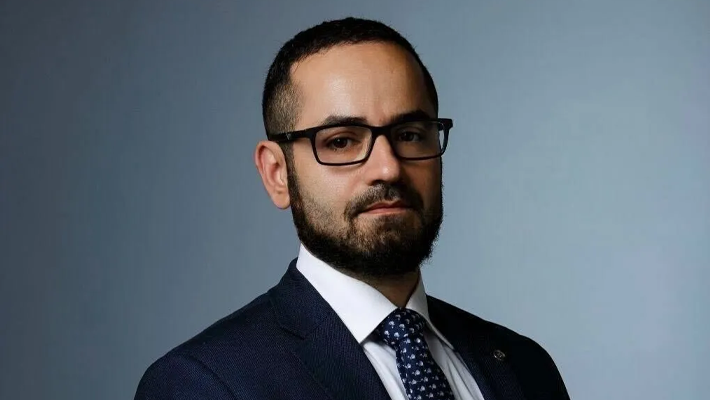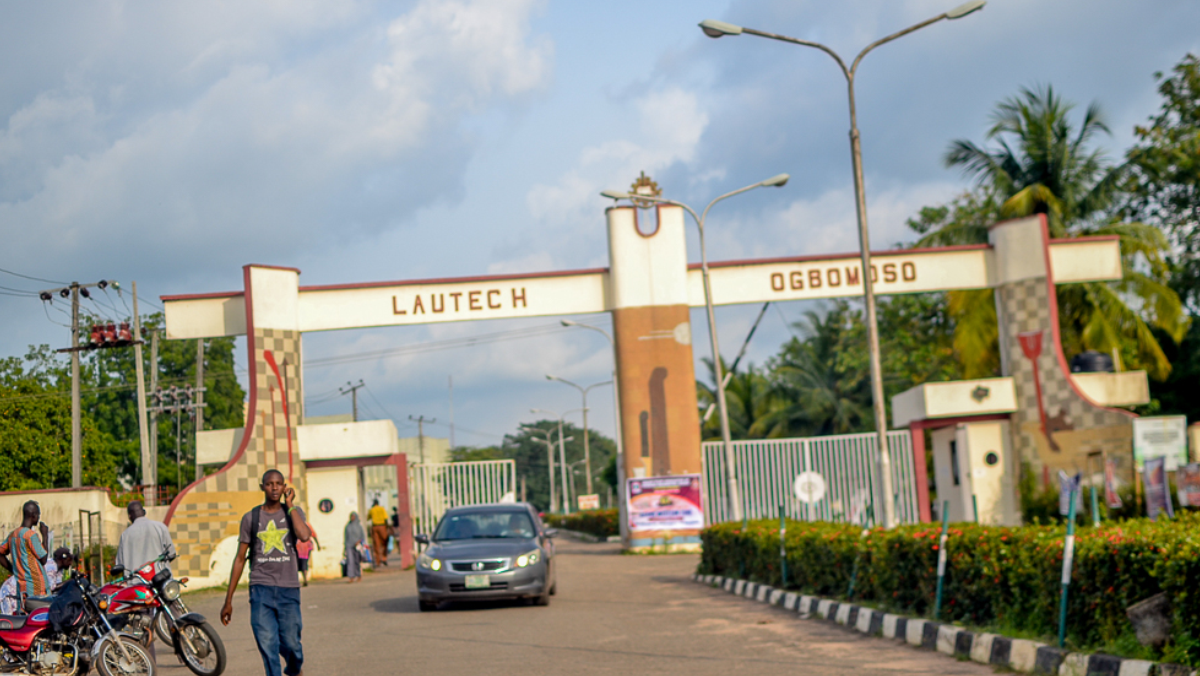Sylvester Oromoni: How Nigeria’s fraying culture fosters bullying, hate crimes and violence amongst school children

The dust is yet to settle on the death of Sylvester Oromoni Junior, the 12-year-old Dowen College student who lost his budding life to tortuous acts of bullying by his seniors in school.
But beyond the cacophony of emotions thrown up by the unfortunate incident, the rot in the Nigeria’s child protection system is once again on the advert banner, beaming until it reaches a lull, and perhaps until another news on hate crimes and violence among schoolchildren breaks.
Sylvester’s case is just one of the many in recent times to highlight the nation’s shambolic acquiescence to the culture of bullying. Before him, there was the matter of Don Davies Archibong, a JSS1 student of Deeper Life Secondary School in Uyo, who was physically and sexually assaulted in school according to her mother, Deborah Okezie.
The boy lost weight and even his sanity at some point in the abuse he suffered in a school that was supposed to shelter and develop him in the year 2020.
“My son came back from school during the time of his saga. He attempted suicide. I have pictures of when he self-harmed (sic). I know what I went through to bring him back,” Ms Okezie recounted in a Facebook live video last year.
The woman’s viral outburst drew public rage to the discomfort of the authorities who were then compelled to “swing into action.” Has anything concrete come out of the case yet?
Nigerians have also been signing a petition to the United Nations International Children’s Emergency Fund (UNICEF) for an investigation into the death of Karen-Happuch Aondodoo Akpager, a 14-year-old Premiere Academy student in Lugbe, Abuja, who was raped through the vagina and anus, bullied into silence, and eventually died of septic shock from a condom left in her genitals.
“The deceased had whitish patches and excoriations on the labia majora and patulous anal opening and laxed anal sphincter with hymen absent which is a clear confirmation of sexual abuse – rape and sodomisation of Karen-Happuch,” an insight into the post-mortem examination provided on the petition read.
To look for UNICEF’s intervention for justice to be done in Ms Akpager’s matter is an indication of a lost faith in local justice mechanisms. But that is quite understandable looking at the direction the Sylvester’s case may be turning.
Since the breakout of reports on the demise of the boy, Dowen College, Lekki, Lagos has been frantic in their claims that nothing untoward befell Sylvester in their care, despite evidence to the contrary.
Medical doctor Chinonso Egemba aka Aproko Doctor did not mince words in discarding the school’s excuses that Sylvester sustained injuries while playing football as against the account of the family that their son’s life was cut short for refusing to join a cult.
“I just watched the video of the boy that died in Dowen College and there is no way in the world that those injuries were sustained from football,” Mr Egemba tweeted.
“I also hate that everyone else seems silent, have some empathy for ffs! It doesn’t have to happen to your child before you seek the truth,” Mr Egemba further added, urging individuals to speak up for the late twelve-year-old.
Bullying: Global concern, local menace
In reality, bullying is a global issue; at least one out of every five students in the United States has reported bullying (20.2 per cent) according to a report published by the National Center for Educational Statistics (NCES) in 2019. According to the same research, male students are more likely to be physically bullied than their female counterparts. Female students are however more likely to be the target of rumours and to be purposefully excluded from activities.
Also, 41 per cent of students who reported being bullied at school indicated that they think the bullying would happen again.
According to ‘Ditch the Label,’ at least 10 per cent of children in the United Kingdom have experienced one form of bullying or another. From nasty messages to being sworn at, being called names as well as being kicked or spitted on. Furthermore, nearly one in every five (19 per cent) children aged 10 to 15 in the UK, or 764,000 children, is subjected to cyberbullying.
Despite the global nature of bullying, the lack of a definite national policy or laws to tackle the concern makes it a peculiar menace in Nigeria.
For a country like Nigeria, where national statistics are not readily available, it might be tacky to ascertain the number of children/students who have had to experience such horrible ordeal. One thing is publicly available information anyway, and it is that bullying exists in Nigerian schools and there has been little or no effort at combating it nationally with the seriousness it deserves.
In a study conducted by a graduate student of the University of Benin, Elizabeth Egbochuku, it was discovered that in the Benin City, Edo State, 78 per cent of children have been victims of bullying on at least one occasion and 71 per cent have lashed out at others at least once.
While the statistics may not be exactly sufficient, recent reports of deaths arising from bullying and findings documented by Peoples Gazette presents bullying as a national emergency that needs to be addressed.
Bullying reports from elite secondary schools across the country, particularly those with boarding facilities, have dominated the news in the past weeks bringing a recall of earlier cases with various social commentators discussing the menace in perspective.
Decadent culture entrenched in a nation’s moral fabric
From time immemorial, bullying arises from the need to ostensibly display superiority, seniority, and domination. This quest to create classes and elite groups in schools is a reflection of the moral fabric of Nigerian society stemming from its classist nature, marked disregard for human rights, due process and victim-blaming.
The morality and justice culture of the Nigerian society appears inseparable from its level of kindness and cruelty. Specifically inseparable from the violence that the fascist, corrupt and neo-colonial system unleashes against the people, and given that everyone is a product of the system, people wait for their turn to inflict the same, or even worse, level of violence that had been done to them, on those coming behind them.
Stories abound of how pupils, especially in boarding schools, were starved, emotionally, and physically assaulted by their seniors in secondary schools. Some senior students are as cruel as saying that no other students should walk on their classroom corridors and students who dare are severely punished.
Some senior students take advantage of this trend to extort and steal from their junior colleagues, seizing their beverages and foodstuffs thereby subjecting their victims to starvation and torture. In extreme cases of bullying, students who have been exposed to dangerous social vices force others to join secret societies, engage in despicable acts, harass them sexually, and then threaten them to not disclose their ordeals to anyone.
Kareem Ogunbiyi, an alumnus of Federal Government College, Odogbolu, recalled his experiences to Peoples Gazette.
Mr Ogunbiyi narrated that there were various methods through which their “seniors” punished them for no reason at all. Ranging from giving them cups of water to “colour” with their beverages, to asking them to push a car drawn on the board from one end to another, or sending them on errands with small money, asking them to buy items that are more expensive and even bringing back change.
“They can ask you to go and “colour” this water, which means that you have to use your provisions to do so. They can even tell you to use a darker colour or say that the colour is not thick enough, this means you will add more milk or Milo, as the case may be,” Mr Ogunbiyi said.
“They can also draw a car on one side of the chalkboard and a service station on the other side and ask you to push the car from one end to another to fuel it, this is clearly impossible but they will beat you mercilessly for not being able to do so.”
“The worst part is when they give you N50 to go and buy egg rolls and yoghurt. They know that egg roll costs N50 but they will tell you to buy two egg rolls and one yoghurt which costs between N50 to N70 naira at that time and still ask you to bring change. We would buy these things with our own money to avoid beating. Sometimes when we are unable to do so, certain amounts are collected from us over a period of time to repay a debt we never owed. It was not a good experience,” Mr Ogunbiyi added.
Another former student of the Federal Government Girls’ College, Akure, who does not want her name in print for fear of retribution, told The Gazette: “I was made to nearly taste poop that is not even my own for not ensuring that the toilet was flushed before the weekly Saturday inspection.”
Bullying, although widely reported across secondary schools, has its wings spread across all sectors of Nigerian society. Several individuals have been targeted because of their religious beliefs, political views, or sexual orientation.
Regulatory frameworks against bullying in Nigeria
A study on bullying laws in Nigeria conducted by Moradeke Abimbola explains why there are no provisions to address it in the country’s 1999 constitution. Ms Abimbola wrote that acts of “Bullying were generally regarded as necessary behaviours of a “stage,” which children in schools have to
pass through as part of the “maturing” process and which has a dynamics of “turn by turn.”
The Gazette in a random search also discovered that not many schools have a clearly spelt out policy against bullying in Nigeria, some schools who claim to have, do not implement them in a manner that prevents recurrence or tackles the root cause of the menace.
The schools that have been mentioned in bullying cases that gained national attention in the country turned out to not have strict anti-bullying policies in place, for instance, at Dowen College where Sylvester was inflicted with injuries leading to his death, the authorities dissipated more attention and energy to concealing the reported case – to protect the image of the school, rather than seeking justice for the victim. This attitude further deepens the crime from victim-blaming to the protection of the perpetrators.
According to parenting educator cum family and social development lawyer, Taiwo Akinlami, the primary duty of schools to the children within their authority is protection. “Protection of life, of rights, and of the dignity of the students,” Mr Akinlami shared on Arise TV on Monday.
This has not been the case with Deeper Life Secondary school in Uyo, Premiere Academy in Abuja, or even Dowen College in Lagos as it is seen that in the eventual break of the horrible stories, the institutions struggle first for the protection of their businesses rather than justice for the young minds who have lost their lives and dignity.
This stems from lack of clear regulatory framework from the supervisory government authorities.
“It is essential that schools have a clearly spelled out regulation against bullying that is codified into a very strong policy guiding the institution,” Mr Akinlami argued. “If you are operating a school without a strict policy against bullying and physical assault, clearly spelled out and strictly implemented, you are operating a potential crime scene.”
The Gazette reached out to these institutions again to ascertain if they had anti-bullying policies before the crimes took place under their watch and how strictly they have followed the policy in terms of punishing the offenders since the crime broke out. The schools failed to respond to the newspaper’s enquiries.
The Federal Ministry of Education, shockingly too, does not have an anti-bullying or abuse of persons policy. The spokesman of the ministry Benjamin Bem Goong says that the minister is yet to make a pronouncement on the issue and will do so at a ministerial press briefing in the coming weeks.
“The Minister is going to make a pronouncement on the issue at his Annual Ministerial press briefing in the coming weeks,” Mr Goong said.
This, according to human rights lawyer Festus Ogun, may be one of the greatest challenges Nigeria’s justice system faces, being a system that in itself “protects crime and criminals.”
“You will observe that these laws exist but people do not get to seek redress under them because away from the law, the socio-political will to punish crime is lacking in the Nigerian society, people try to make excuses for it and the authorities more often than not, attempt a cover-up. All of these do not help the justice system,” Mr Ogun said.
When asked about steps to legal redress for victims of bullying, Mr Ogun said, “There is no act directly or specifically punishing bullying in Nigeria but victims can seek legal redress under a number of acts and state laws across the country. This includes the anti-torture act which prohibits starvation and deprivation of sleep, the criminal code act, the violence against person act and the child rights law of Lagos state.”
Mr Ogun also hinted that the laws protecting persons in Nigeria, including internet protection is recorded in the Cybercrimes act.
“The Cybercrimes act also protects people from internet bullying and cyberstalking,” he added.
How to know if your child is being bullied
From unexplainable injuries, to decline in grades, loss of belongings, isolation, and weight loss, symptoms of bullying vary in how they affect children. It is essential that parents, teachers, and counsellors employ adequate patience in dealing with each case.
- Unexplainable injuries – If your child has sores, cuts, bruises, scars all over his/her body with vague explanations as to how the injuries were sustained. Late Sylvester had injuries all over his body indicating that he was badly beaten by his co-students at Dowen College but the school insisted that he was injured from a football game that never took place. Injuries should be examined by a medical expert as the case may be.
- The decline in grades – Trauma manifests in different ways. A bullied child may keep flunking their tests and exams.
- Loss of belongings – When your children lose personal items repeatedly.
- Fear: When a child is often enveloped in fear and becomes jittery at the mention of “school”.
- Isolation: Bullied children are often alienated from cliques and other social groups.
- Change in character – An outspoken and confident child may become timid and uncommunicative after several episodes of bullying.
- Unhealthy weight loss – When a child drastically loses weight despite fully-packed lunch boxes and adequate supply of beverages, cereals and snacks.
- Self-Harm – Bullied children tend to be suicidal or resort to self-harm as a means of escaping or dealing with their predicament.
Signs to know if your child is a bully
- Aggression – Bullies tend to get violent towards siblings, domestic staff and adults to have things their way.
- New items/money – Bullies own new items with little or no explanation as to how they were obtained.
- Reputation-conscious – Bullies are oftentimes competitive in nature. They have a faux sense of grandeur and are conscious about how they are perceived by classmates and schoolmates. Many are obsessed with popularity among their peers.
- Regular candidate for Detention: Bullies often get into trouble with teachers and caregivers. They are notorious for serving punishment.
- Aggressive friends: Some bullies have mastered the art of pretending to be saints in the presence of their parents. However, their violent friends give them away. It is nearly impossible to be best friends with bullies if the child in question isn’t a bully.
- Blame-Shifting – Bullies would rather shift blames than take responsibility for their bad behaviour.
Quick fixes for bullying
- Report the situation to a trusted adult. The bullied child should not succumb to threats or intimidation. Communicate the incident as soon as possible to the nearest trusted adult.
- Teachers and caregivers have a duty not to ignore or cover up acts of bullying. Also, they should be constructive in their criticism as bullies pick on children who sometimes aren’t the teacher’s favourites.
- School authorities should make and enforce anti-bullying rules. Any student caught in the act should be punished publicly to serve as a deterrent to others.
- Parents should develop personal relationships with their children. Pay them unexpected visits in the boarding house or school and look out for injuries and scars.
- Schools should organise shows, seminars to sensitise students on the need to treat each other as they would like to be treated.
- Parents and guardians need to stop fighting themselves and maltreating domestic staff in the presence of their children and wards. Being the closest role models, children are likely to imitate parents’ toxic behaviour at school.
- Violent movies should be discouraged as children have a habit of practising the fighting moves of villains on siblings and friends.
- At the point of admission, parents and children should sign a contract to adhere to stipulated anti-bullying policies or face dire consequences that may require the erring child sent to a juvenile facility.
Propositions for lasting drive against bullying
The menace won’t go away without a proper federal legislation to prevent and punish the offence. This means that the federal government through the legislation would make it compulsory for all schools under its authority to have a clearly spelled out policy or code of ethics, outlawing bullying and punishing it according to the law.
The state governments would also be advised to domesticate the legislation as seen in France. The parliament is drafting a law to designate bullying as a criminal offence and guilty persons now risk a three to ten years jail sentence and heavy fines to the tune of €150,000 (N70,000,000).
Another route would be, according to queer liberation activist Kayode Ani, a drastic change in Nigeria’s national culture and a massive re-orientation of the public. For Mr Ani, Nigeria’s history of dehumanisation of its citizens and the hardship the people encounter is a major factor contributing to bullying.
“I don’t see a way that we can eradicate the culture of bullying without addressing the cruel culture that we have as a society which is linked to capitalism as it is practised in Nigeria. Because of how much suffering people endure, we have basically translated ourselves into a situation where we have the outlook that suffering is what everyone should go through. Across work, school and society, we believe that you must suffer to advance.
“Teachers beating students should also be completely banned. Senior students beating or bullying junior students is a behaviour that is most exemplified by the staff of these schools,” Mr Ani said.
We have recently deactivated our website's comment provider in favour of other channels of distribution and commentary. We encourage you to join the conversation on our stories via our Facebook, Twitter and other social media pages.
More from Peoples Gazette

Politics
Katsina youths pledge to deliver over 2 million votes to Atiku
“Katsina State is Atiku’s political base because it is his second home.”

World
TikTok responds to EU ultimatum on new rewards-for-views app
The commission seeks to know how the Chinese-owned video-sharing platform assessed the addictiveness and the scheme’s mental health risks.

Rights
Forum tasks govt on safe work environment to curb sexual harassment
There is the need for full implementation of the Compulsory Treatment Law, 2020 across health institutions in the state.

NationWide
Court fixes May 17 for ruling on Binance executive’s bail plea
Mr Iheanacho said the court would be taking a grave risk by granting the Binance agent a bail.

Heading 1
Alleged accidental shooting by guard leaves LAUTECH student dead, two others injured
The incident reportedly triggered a riot in the school.

Health
Ogun judiciary workers suspend strike
The union said that it would continue to engage the state government towards the actualisation of its demands.

Economy
Naira loses 5.3% against dollar at official market
At the Investor’s and Exporter’s (I&E) window, the naira traded between N1,317.00 and N1,000.00 against the dollar.








